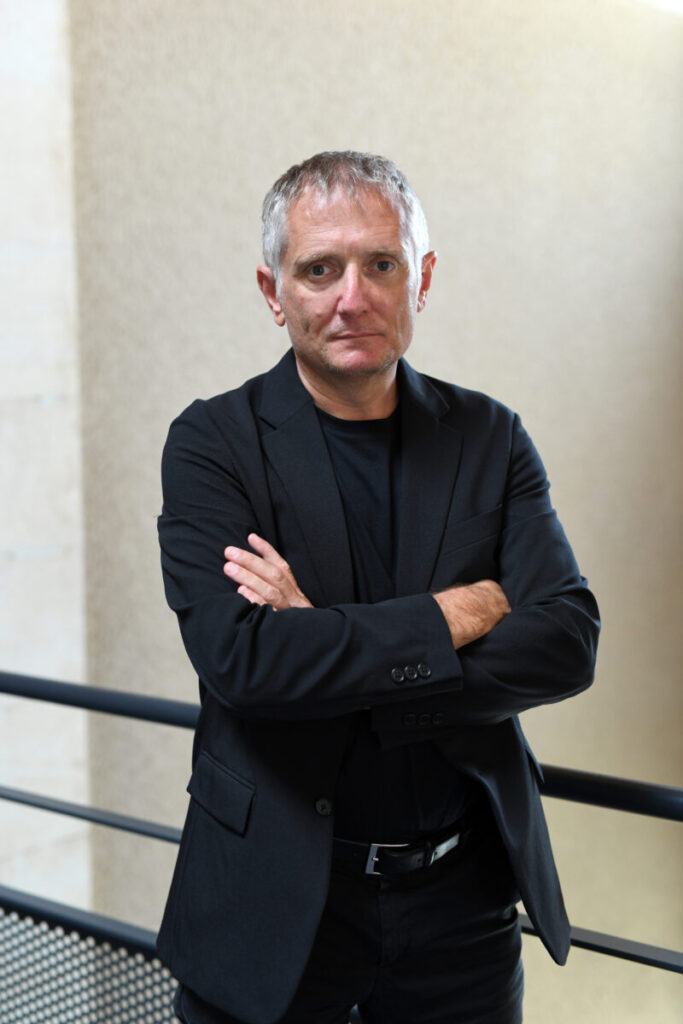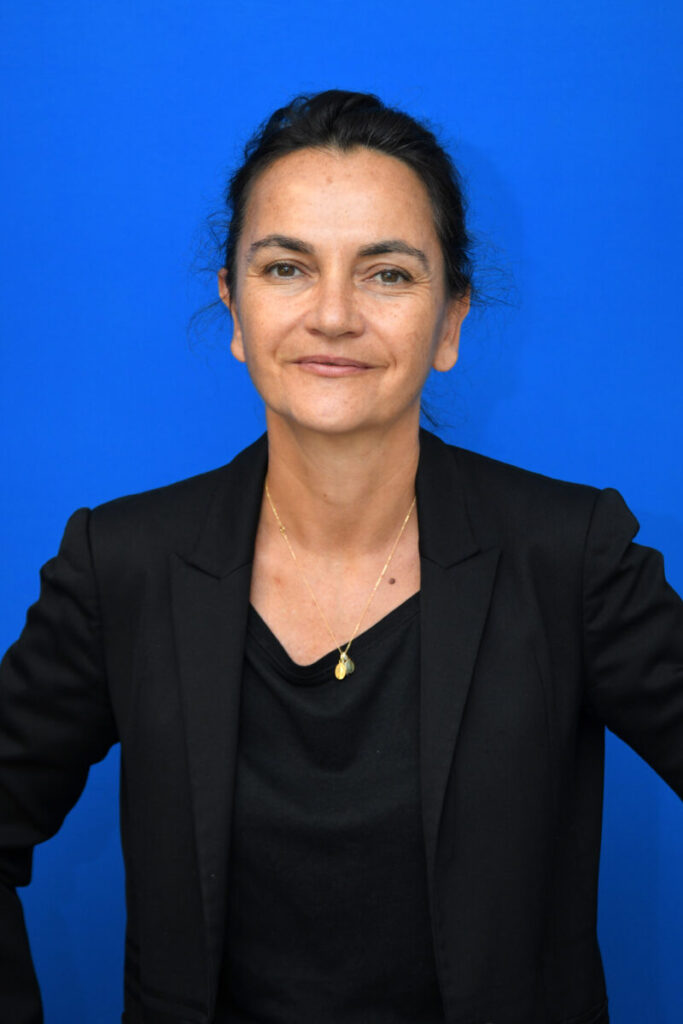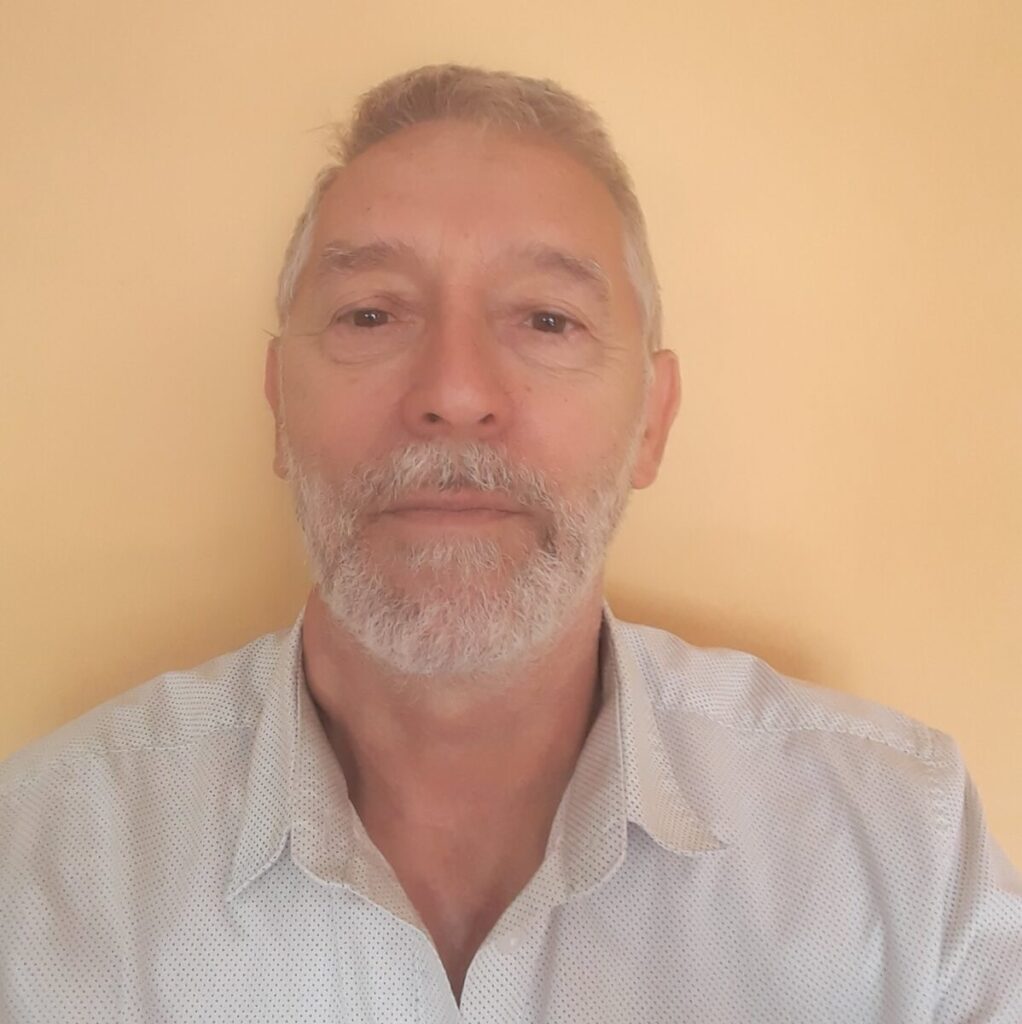Interview with Bernard Mossé, Scientific Director of NEEDE Méditerranée, with François Crémieux, General Director of the Public Assistance of the Hospitals of Marseille (APHM) and Émilie Garrido-Pradalié, Director of Innovation at APHM.
#3 Local Partnerships
Bernard Mossé: On all the topics we have just discussed, can you identify specific characteristics unique to the Mediterranean basin, or that would make it, as is said for other environmental issues, “a laboratory for the world”?
François Crémieux: It would be tempting to think so, when you are Mediterranean yourself, living in Marseille and even being responsible for the hospitals in Marseille. But there are probably many other regions that are also interesting to study in this area.
My first remark is that we are on the edge of an environment whose fragility we perceive, I believe, and thus it reflects our own fragility. Anyone who has taken an interest in the history of the Mediterranean can see that there have been periods of great fragility for this ecosystem, with times when it has largely closed off or conversely developed, where it has lost a good part of its waters… So, it is tempting to think that.
Secondly, when you travel a bit, there are many places in the world where the environment also raises questions, whether in mountain ecosystems that are in great danger due to major transformations, on the shores of vanished seas, or in deserts that are gradually encroaching on urban spaces….
I think it would be irresponsible not to see that the Mediterranean calls to us, but I think it calls to us just as much as other inhabited ecosystems.
My last remark is that the Mediterranean has this exceptional quality of involving populations living in very different political and sociological environments. And I find that it creates a fascinating collective issue, among peoples with very different histories, confronted with the same climate challenge. It is a good excuse to link the issues of democracy, politics, and society with environmental issues. This is sometimes less the case when you are in more homogeneous communities facing the same climate risk.
B.M.: How does APHM get involved in these societal issues, particularly in organizing access to care for the most vulnerable? Is there special attention or specific measures that have been put in place?
F.C.: For me, the first issue is that APHM is aware of its responsibilities as a public service. There must be recognition by all of the issue of health inequalities and within health inequalities, access to care; access to care is not the only cause of inequalities, but it contributes to them. And I include prevention, education, and support for illness. The public health service and, among others, the public hospital service has the responsibility to address this issue. It may seem obvious, but in fact, it is not the case. That is to say, the Public Assistance of the Hospitals of Marseille, contrary to what its name might suggest, does not have in its missions public assistance and the reduction of health inequalities… Our missions are care, teaching, and research. This means that there is not intrinsically, and beyond the texts that legislate on hospitals and the public health code, the responsibility for the issue of inequalities. Not only is this not self-evident, but it is sometimes contested: it would revert to primary care medicine or private medicine. And so for me, the first important thing is to reaffirm loudly and clearly, both externally and internally, that this issue is one of the priorities, on par with organizing the management of rare diseases, pediatric emergencies, organ transplants, or access to emergency services 24/7, etc. This means that it is an issue that obliges us.
Second remark: we must act in collaboration, or in support, with those who are already doing it. And so this requires constructive relationships with the associative world, with the liberal world, with primary care medicine, with PMI (maternal and child protection services), etc. Each service of APHM is in relation with its environment on the particular therapeutic area for which it is responsible. For example, improving access to somatic care for disabled individuals in institutions. This is typically cooperation between the medico-social and hospital sectors.
And then thirdly, when there is nothing, there must be public service. This is the very essence of what public service should be. And so when, in the northern neighborhoods of Marseille, we realize that for reasons of working conditions, housing, medical demographics, etc., there is no longer any care offer, public service must step in. This is what we have done by creating and developing health centers in the popular neighborhoods of Marseille. It should be the same in the fields of education, transport, or other areas... And so, it is about ensuring and assuming an internal and external awareness that the public hospital service also has the mission to fight against health inequalities and to respond to the challenges of equal access to care: in practice and through the opening of structures that organize access to care in places where there is none.
B.M.: Is this materialized, for example, by participation in public service platforms, as they are being created in various neighborhoods of the Urban Policy?
F.C.: Physically, no. However, yes, we work in a network with other public services, with all those who contribute to access to rights for patients, to the care of individuals in other environments: school health, occupational health, PMI, structures for the elderly, health and social establishments, medico-educational institutes, or certain private medical centers… We also work with all the services of the Judicial Protection of Youth, with the prison administration…
BM: Are there actions taken by APHM and its services towards environmental transition and sustainable development goals?
F.C.: On the question of environmental transition, I am not the most expert. We could give you more specific examples, but the answer is partly yes, particularly in terms of training. For example, we now have incentives - and in some areas, it is starting to become mandatory - for training state agents to which the hospital public service is associated. And so some of us have been able to participate in such training. This is very recent, just a few years, and so these are training programs under construction. The School of Advanced Studies in Public Health (EHESP) now has training programs for young managers of the hospital public service on environmental issues. Then, we have transversal issues related to regulatory injunctions, if I may say, around the question of responsible purchasing, obligations to make mobility plans just like all employers. No more, no less.
Émilie Garrido-Pradalié: On the other hand, systematically, when we submit a project, for example at the European level, we engage our social and environmental responsibility: this is part of the expectations, regarding gender equality or access to employment, internally...
In this area, we work with France Travail on access to employment for the most distant populations. We welcome young people who are part of programs from the Ministry of Labor on professional integration.
We can say that we are at the beginning, not of the awareness which is well there, and sometimes very strong among our teams, but of a structuring of environmental transition actions.
BM: Are the public health policies you implement with your teams articulated, at the local level, with the actions of the private health sector?
F.C.: First of all, I want to say, as a precaution, but strongly, that the caveat I will add immediately does not detract from the commitment of a whole series of very involved individuals and, with a few exceptions, of a few particularly motivated institutions on these issues of solidarity, welcoming the poor, and addressing inequalities. Once we have said that, we must acknowledge that the reality of the liberal world and its evolution does not go in the direction of an articulation of the actions of the public sector and the private sector. We could say that public policies themselves sometimes borrow from liberal logic - through the financing model or activity-based pricing - and that they have turned away from what was still a few decades ago charitable works. And that on its side, the private sector sometimes takes on certain public service missions: for example, access care permanence in certain clinics; or the essential presence of liberal doctors in difficult neighborhoods… Similarly, the issue of AME (State Medical Aid) is also to maintain the care offer for foreigners beyond just public hospitals. And so no, the fundamental question we have been discussing for a while regarding welcoming, hospitality, public service certainly does not have exclusivity in this regard. But the evolution of structures, economic models, etc., means that it is today the main guarantor.
As the General Director of APHM, I am not under the pressure of contradictory injunctions. I respond on one side to professionals of APHM who themselves respond to patients, and, on the other side, I respond to political power, primarily through my supervisory authority and a supervisory board composed mainly of elected officials. At no time do I respond to people who have an economic interest in the development of Public Assistance. This is not the case for a private structure that must also respond to those who contribute to investing and who are sometimes very, very far in terms of political issues, but also sometimes from the Marseille territory.
However, where public policy has failed is in the segmentation of beneficiaries, in a two-speed system, which has a double impact. The first is to orient the private sector towards a profitability capacity that allows it to invest in differential hotel conditions compared to the public sector; to have premises in better condition or to pay its doctors better for some or to generate more margin for investors, for others…
On the other hand, we are fortunate in the world of university hospitals to be very little in competition with the private sector. Because ultimately, the university hospital has retained a certain monopoly in very specialized reference activities. And because, furthermore, we continue to carry out a proximity activity. Another advantage is that medical training remains exclusively a public training: the French university has retained the monopoly. Thus, we have a number of stabilizing and preserving elements of public service. But the segmentation of beneficiaries between the public sector and the private sector is a real risk, ultimately lethal, for the public sector and thus for its beneficiaries.
Biographies

François Crémieux is a senior health official with a unique and diverse background. He holds degrees in economics from the universities of Paris Dauphine and Lancaster (UK) and in public health from the Paris Diderot Faculty of Medicine. Since June 2021, he has been directing the Public Assistance-Hospitals of Marseille, APHM. He has had a long career as a hospital director, leading him from the Clermont hospital center in Oise to the Kosovska Mitrovica hospital in Kosovo, including roles as an advisor to Marisol Touraine, Minister of Social Affairs and Health, and Deputy Director General of APHP under Martin Hirsch. His commitment is reflected in various actions: a volunteer in Bosnia in the 1990s, during the war; a long-time member of the editorial board of the journal Esprit; an advocate for a frontline hospital to reduce social inequalities in access to care.

Emilie Garrido-Pradalié is a hospital director in charge of innovation at APHM. She holds degrees in theoretical and applied economics from the University of Montpellier and in computer science and information systems from the École des Mines d'Alès. She began her career in public service within the Montpellier Metropolis led by Georges Frêche. She joined the CHU of Montpellier in 2008 to lead change management activities with human resources, medical and non-medical staff, then joined APHM to lead research from June 2018.

Bernard Mossé is a historian, Research, Education, and Training Officer of the NEEDE Méditerranée association. He is a member of the Scientific Council of the Camp des Milles Foundation – Memory and Education, for which he was the scientific director and coordinator of the UNESCO Chair “Education for Citizenship, Human Sciences, and Convergence of Memories” (Aix-Marseille University / Camp des Milles).
